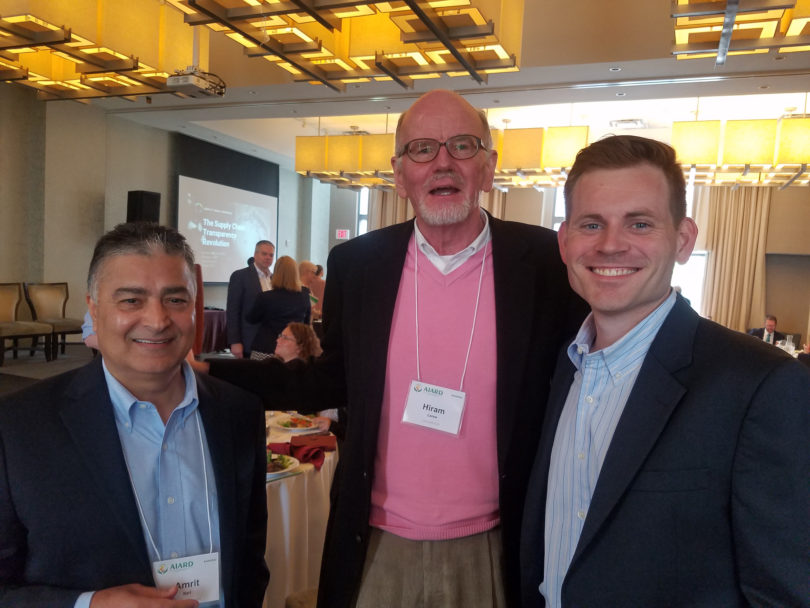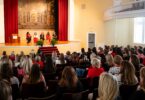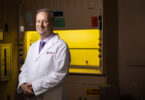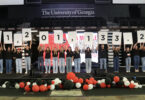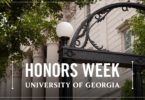Having spent a year in Ghana providing support to farmers and leading a 4-H-style program for children, Chandler Mulvaney knows a bit about international agriculture.
But the opportunity to attend this year’s meeting of the Association for International Agriculture and Rural Development still provided many eye-opening opportunities. The master’s student in agricultural and environmental education met representatives of industries, universities, government agencies and nongovernmental organizations during the AIARD annual conference in Washington, D.C.
While many professional meetings have a reputation for being dry, Mulvaney said the AIARD conference was small and community driven.
“Everyone seemed to know each other,” he said. “But that meant everyone knew those of us who weren’t members. They welcomed us and came up and talked with us throughout the conference.”
Mulvaney was one of about two dozen students to attend the conference from throughout the U.S. A dozen of those students were selected by AIARD via a competitive fellowship program.
“I had applied for the fellowship program but found out in late April that I wasn’t selected,” Mulvaney said. “That same week, I was notified that the Office of Global Programs had a scholarship available for the conference. I applied and was selected to attend that way.”
The scholarship is funded by UGA alumnus Hiram Larew, who retired in 2015 as director of international programs for the U.S. Department of Agriculture National Institute of Food and Agriculture.
“International agriculture is so important to Georgia’s economy and to UGA CAES programs,” Larew said. “I’ve been pleased to support international agriculture students from UGA like Chandler and, last year, Maria Moore as they’ve attended the AIARD national conference. Being able to attend AIARD will hopefully boost their interests and startup careers.”
In addition to meeting Larew and other AIARD members, Mulvaney also attended presentations by a variety of professionals on research addressing issues in international agriculture.
This year’s conference was titled “Business UnUsual: Aligning Critical Intersections of Agriculture, Health and Food” and, among other issues, explored the ways technical interventions intersect with cultural factors in creating change, a topic that is of particular interest to Mulvaney, who is headed to Uganda this fall to conduct research for his master’s thesis.
“I’ll be gathering qualitative research in a village in Uganda that focuses on farmers’ decisions to adopt or reject the use of fertilizer,” he said. “Most research focuses on the economic factors for adoption of new farming practices, but there are also cultural reasons that can influence decisions; that’s what I want to uncover by interviewing both men and women farmers.”
As he reflects on his experiences at AIARD, Mulvaney said he’s grateful to have the opportunity to meet professionals who share his passion for international agriculture.
“I hope to some day have a career that is focused on the types of applied agriculture that so many of the AIARD members seem to have,” he said. “I hope I’m able to connect my research back to working with farmers in Africa, assessing their needs and helping them.”


